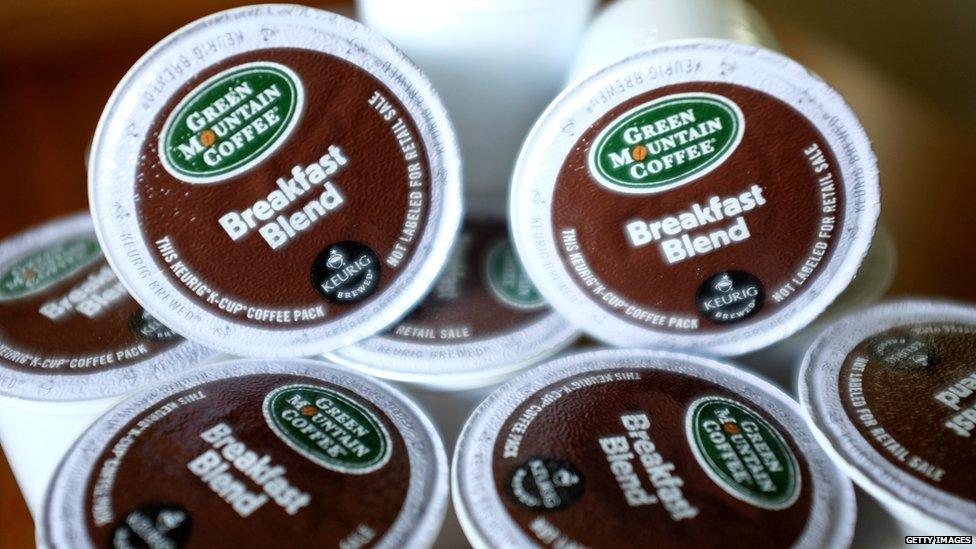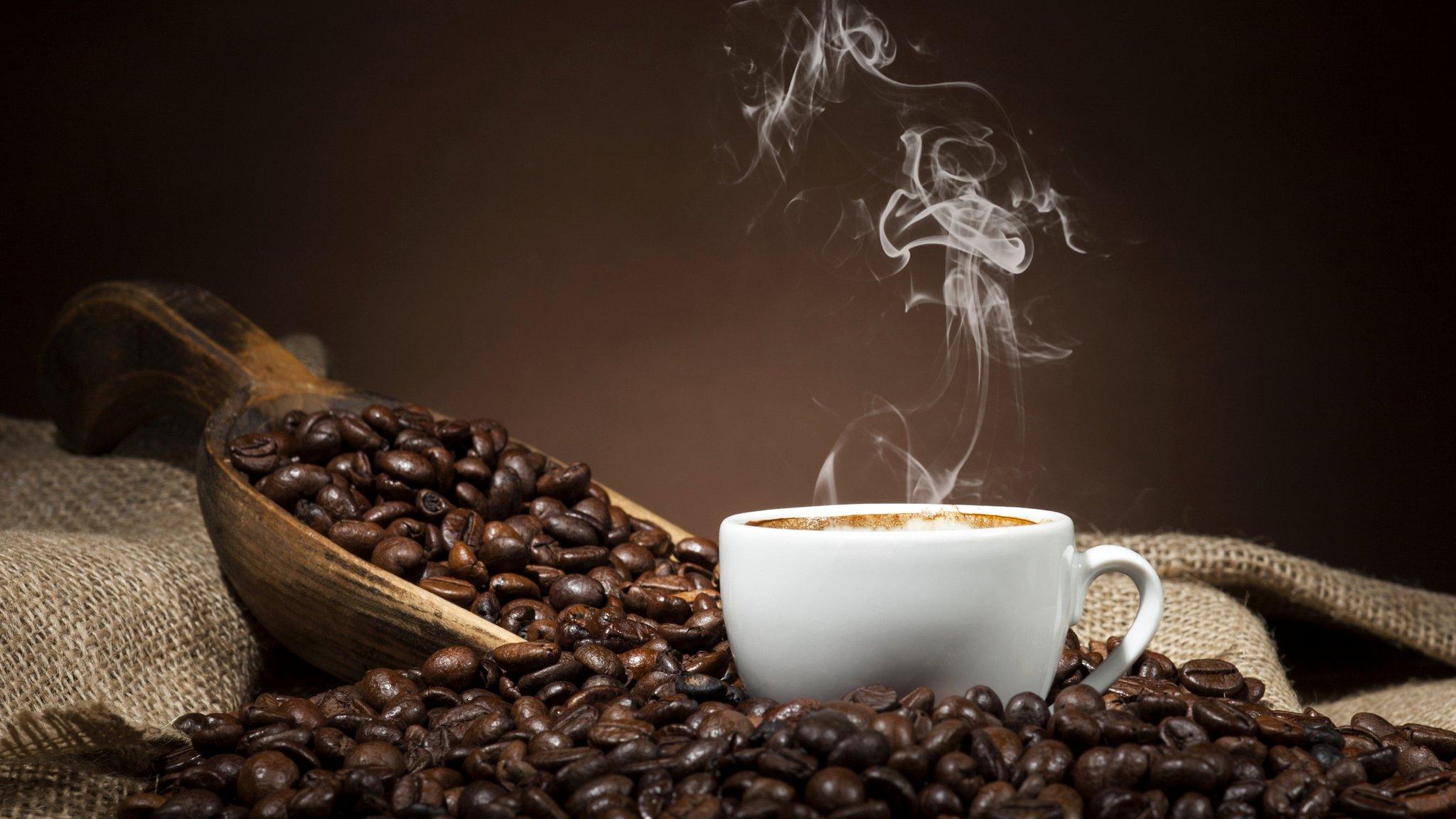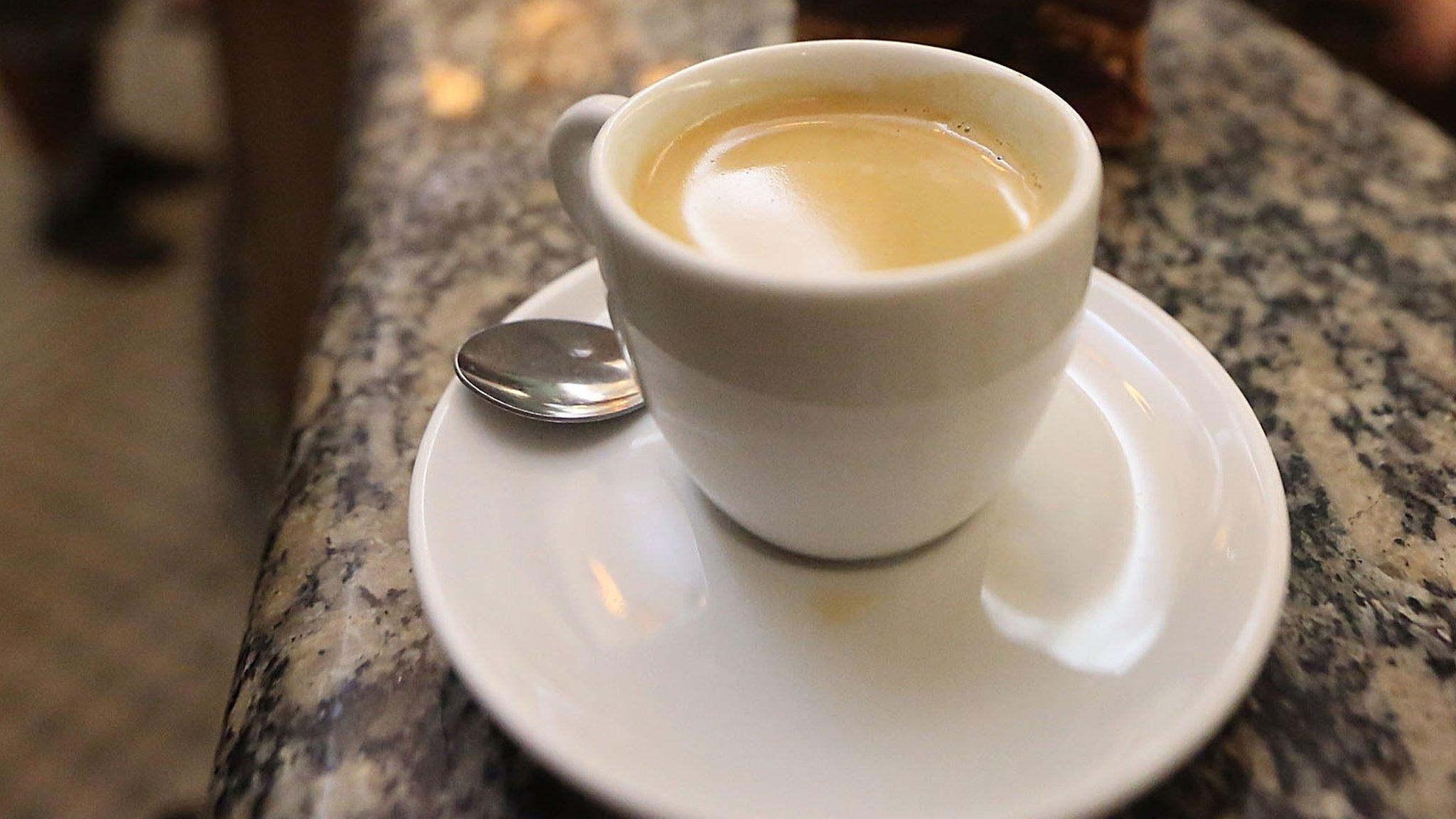Coffee maker Keurig sells to Douwe Egberts owner for $13.9bn
- Published

Keurig Green Mountain, which makes K-cups single-serve coffee pods, said it has accepted a $13.9bn (£9.2bn) bid.
The German investment firm, JAB Holding will pay a 78% premium to Friday's closing price to buy the company.
JAB is offering $92 a share. While more than Friday's price, it's a discount to the $157 share price high the company enjoyed in November 2014.
The deal will make JAB the biggest player in the North American single-serve coffee pod market.
"Keurig Green Mountain represents a major step forward in the creation of our global coffee platform," said JAB chairman Bart Becht, in a statement.
JAB has invested heavily in the US coffee market. It bought Caribou Coffee Co and Peet's Coffee & Tea in 2012 and formed a joint venture between coffeemakers DE Master Blenders and Mondelez International in July.
'Strong partnership'
Keurig will continue to operate as an independent company after the purchase.
Coca-Cola - Keurig's biggest investors- voiced its support for the deal in a statement. Coca-Cola will take a 17.4% stake in the new private company.
"We have enjoyed a strong partnership with Keurig Green Mountain, and will continue our collaboration with JAB in order to capitalize on the growth opportunities in the single-serve, pod-based segment of the cold beverage industry," said Muhtar Kent, Coca-Cola's chief executive.
Despite the higher cost of a single-serve coffee pod compared to a cup of filter coffee, the popularity of the machines continues to grow globally.
According to Euromonitor International, external over the next three to five years, sales of single serve coffee pods are expected to grow by 5% in the US, 10% in Canada and 8% in Mexico. The research firm said the coffee pod business already accounts for 40% of the $15bn global coffee market.
Adding to waste
The business is not without its critics. The plastic pods have been criticised for increasing the amount of waste in landfills
In March the creator of the K-cups, John Sylvan, told The Atlantic magazine he did not use the machine and acknowledged their cost and impact on the environment.
"I feel bad sometimes that I ever did it," Sylvan told the magazine.
- Published28 October 2015

- Published2 October 2015
